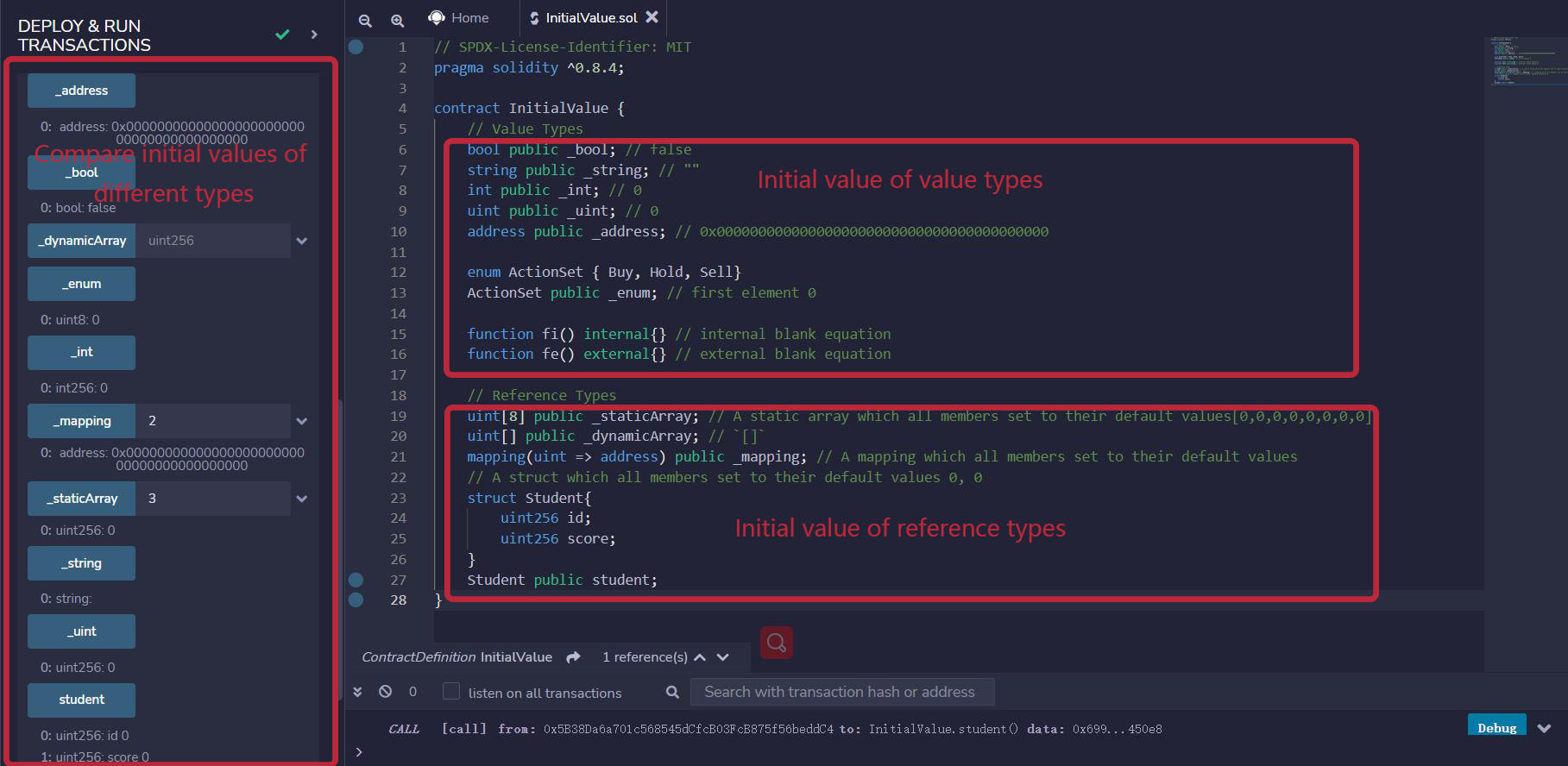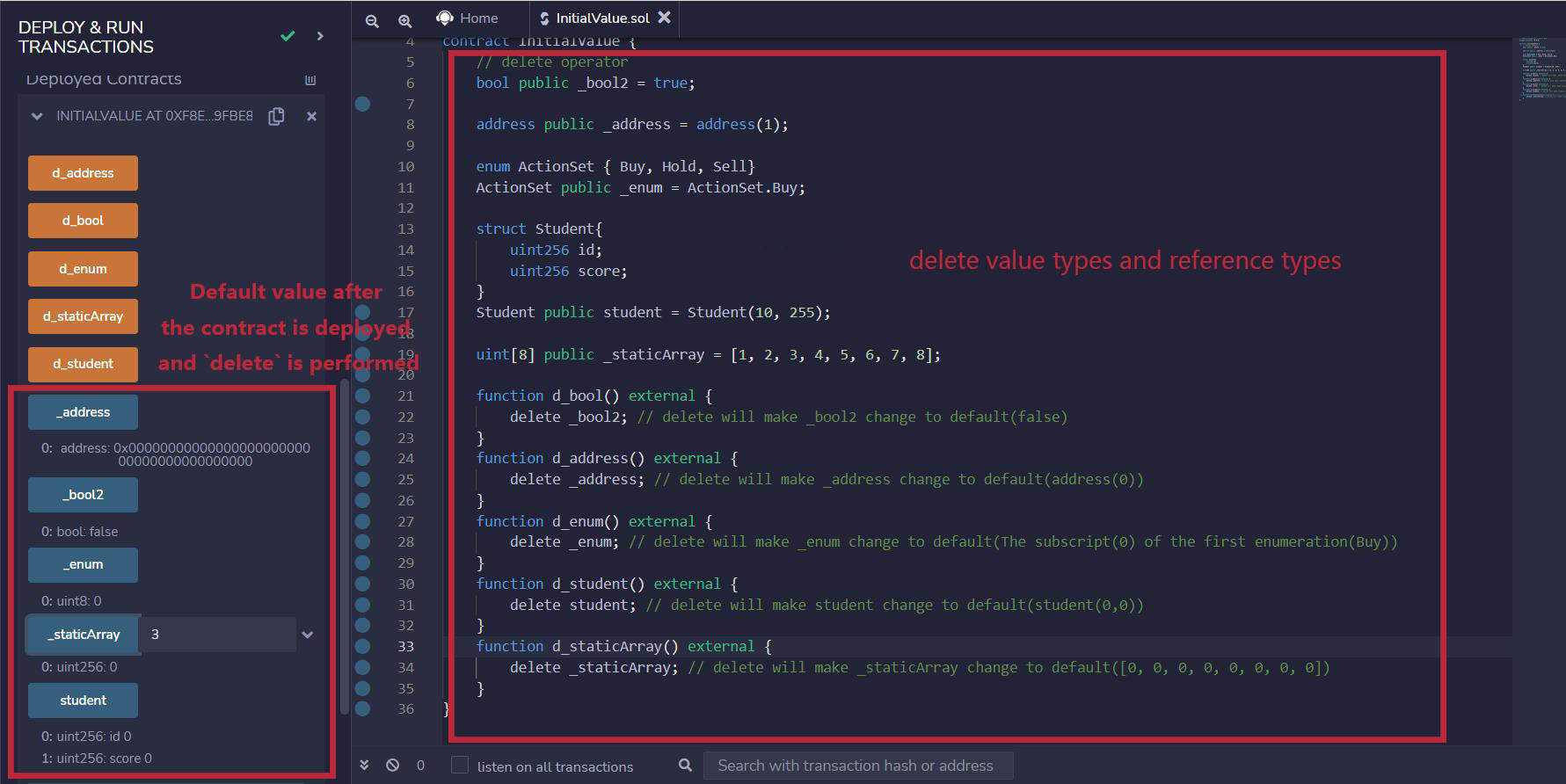# Solidity Minimalist Tutorial: 8. Initial Value
Recently, I have been relearning Solidity, consolidating the finer details, and also writing a "Solidity Minimalist Tutorial" for newbies to learn. Lectures are updated 1~3 times weekly.
Everyone is welcomed to follow my Twitter: @0xAA_Science (opens new window)
WTF Academy Discord: Link (opens new window)
All codebase and tutorial notes are open source and available on GitHub (At 1024 repo stars, course certification is unlocked. At 2048 repo stars, community NFT is unlocked.): github.com/AmazingAng/WTFSolidity (opens new window)
# Initial values of variables
In Solidity, variables declared but not assigned have their initial/default values. In this tutorial, we will introduce the initial values of common variables.
# Initial values of value types
boolean:falsestring:""int:0uint:0enum: first element in enumerationaddress:0x0000000000000000000000000000000000000000(oraddress(0))functioninternal: blank equationexternal: blank equation
You can use getter function of public variables to confirm the above initial values:
bool public _bool; // false
string public _string; // ""
int public _int; // 0
uint public _uint; // 0
address public _address; // 0x0000000000000000000000000000000000000000
enum ActionSet {Buy, Hold, Sell}
ActionSet public _enum; // first element 0
function fi() internal{} // internal blank equation
function fe() external{} // external blank equation
# Initial values of reference types
mapping: amappingwhich all members set to their default valuesstruct: astructwhich all members set to their default valuesarray- dynamic array:
[] - static array(fixed-length): a static array where all members set to their default values.
- dynamic array:
You can use getter function of public variables to confirm initial values:
// reference types
uint[8] public _staticArray; // a static array which all members set to their default values[0,0,0,0,0,0,0,0]
uint[] public _dynamicArray; // `[]`
mapping(uint => address) public _mapping; // a mapping which all members set to their default values
// a struct which all members set to their default values 0, 0
struct Student{
uint256 id;
uint256 score;
}
Student public student;
# delete operator
delete a will change the value of a to its initial value.
// delete operator
bool public _bool2 = true;
function d() external {
delete _bool2; // delete will make _bool2 change to default(false)
}
# Verify on Remix
Deploy
InitialValue.soland check the initial values of the different types.
After using the
deleteoperator, the value of the variables are reset to their initial values.
# Summary
In this section, we introduced the initial values of variables in Solidity. When a variable is declared but not assigned, its value defaults to the initial value. Variables with different types have different initial values. The delete operator can reset the value of the variable to the initial value.